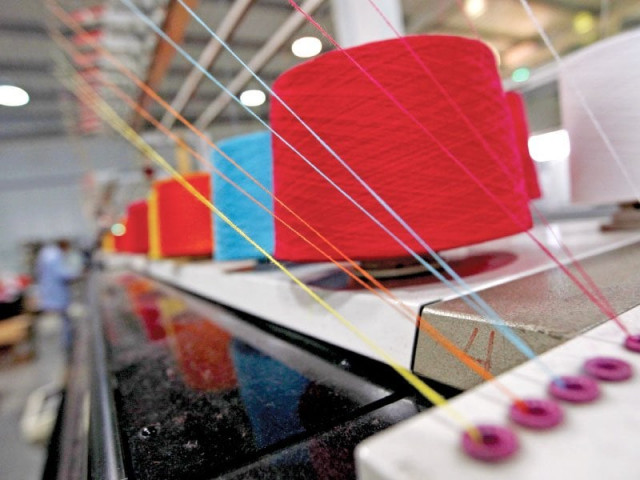Hefty tariff rise to send production cost soaring
Textile makers voice concern over planned tariff increase of 53% and 30%.

The industrial gas price in Bangladesh, which is one of the main competitors, is $1.86 per million British thermal units (mmbtu), Sri Lanka has $3.66 per mmbtu, India $4.20, Vietnam $4.33 while in Pakistan the gas price is $4.83. PHOTO: REUTERS
The government’s intention of increasing tariff by 53% for industries and 30% for captive power plants has caused anxiety among textile exporters, Bilwani said in a press release on Friday.
The tariff rise would render textile exports uncompetitive in the international market and the increase in the cost of doing business could make it impossible to meet the commitments to foreign buyers on a six-month and yearly basis, he said.
Almost all captive power plants are running in textile manufacturing units and are based on natural gas. These are co-generation plants and most of the generators have one-megawatt capacity, with approximately 40% to 70% efficiency.
Bilwani asked why textile exporters were being penalised for the incompetence of authorities, who had failed to control line losses and theft, which were being forced on the bill-paying consumers.
Elaborating, he said unaccounted-for-gas (UFG) losses in the residential and commercial sectors were over 10% while in the industrial sector the figure was barely 2%.
“It is an international practice that efficient consumers are facilitated and rewarded to encourage the inefficient consumers whereas here the government seems to be punishing and penalising the efficient consumers, who are going an extra mile to save and conserve energy.”
He suggested that Pakistan must emulate the example of neighbours like India and Saudi Arabia where liquefied petroleum gas (LPG) cylinders were used in households. “We are wasting our energy resources by supplying gas to households through worn-out pipelines.”
The industrial gas price in Bangladesh, which is one of the main competitors, is $1.86 per million British thermal units (mmbtu), Sri Lanka has $3.66 per mmbtu, India $4.20, Vietnam $4.33 while in Pakistan the gas price is $4.83. By adding gas infrastructure development cess (GIDC), the price goes up to $6.31.
The price for industrial captive power plants is $5.67 per mmbtu and with GIDC it increases to $7.65, the highest among all those mentioned above.
In order to survive stiff competition in the global market, gas tariff should be fixed on a yearly basis in line with the practice in other competing countries, he said. “This will keep the cost of doing business at bay and enable exporters to cope with global competition.”
Published in The Express Tribune, January 3rd, 2015.
Like Business on Facebook, follow @TribuneBiz on Twitter to stay informed and join in the conversation.



















COMMENTS
Comments are moderated and generally will be posted if they are on-topic and not abusive.
For more information, please see our Comments FAQ